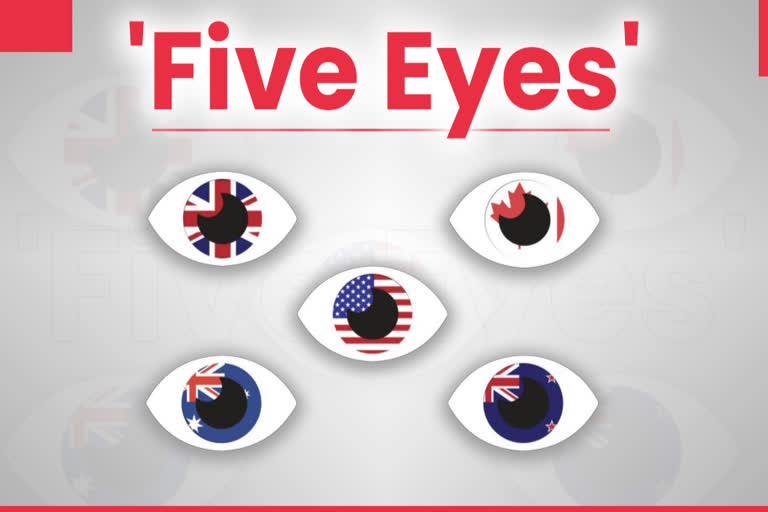New Delhi: Riding on the back of rapid economic and military growth, an assertive and belligerent China is leading to rearrangement of global geopolitical strategy like never before.
With India being increasingly getting drawn into a US-led anti-China alliance led by the US, there is speculation that India may be preparing to join one of the world’s oldest intelligence sharing spy network called 'Five Eyes.'
Set up in 1941, 'Five Eyes' is an exclusive and secretive club of spy rings of five governments—Australia, Canada, New Zealand, UK and US—that collaborate to intercept information within other countries to be used for diplomatic, security, military and economic benefits and gains.
Four developments predicate such thinking.
Firstly, on Monday, India kick-started the effort to set up Quad’s military architecture by going ahead with the ‘Malabar’ naval exercise scheduled in November along with partners US, Australia and Japan.
Till now India has been edgy about going about it formally as it would mean an open alignment with the US-led group against China.
Two of the Quad countries—US, Australia—are already in ‘Five Eyes’.
What may force India’s hand to join ‘Five Eyes’ is the ongoing and escalating military tension since April-May with China across East Ladakh where at least 20 soldiers have lost their lives till now and scores injured on both sides.
Secondly, on October 11, in a very significant move, India joined a meeting with ‘Five Eyes’ and Japan and together issued a joint statement in asking giant technology companies to provide solutions so that end-to-end encrypted communications including WhatsApp, Signal, Telegram, Facebook Messenger etc can be accessed.
The joint statement while not naming the Indian and Japanese signatories named the others who included Priti Patel, UK secretary of state for home, William P Barr, US attorney-general, Peter Dutton, Australian home minister, Andrew Little, New Zealand’s security and intelligence minister and Bill Blair, Canada’s minister for public safety.
Thirdly, in early October, UK defence secretary Ben Wallace said the UK is looking to “deepening” the ‘Five Eyes’ by recruiting more countries in order to “send a message to China”.
Wallace said: “Mutual help and mutual signalling about standing by each other is really important for us sending a message to China… In fact, we are already working around some of those Asia groupings that allow international observers or indeed partner status. So we will be doing more of that, that’s really the best way we can do it.”
Fourthly, the US is understood to be already acquainted with the need to expand ‘Five Eyes’.
In December 2019, US Congressman Adam Schiff, who chairs the House Permanent Select Committee on Intelligence, in a report had sought to expand the ‘Five Eyes’ by including India, Japan and South Korea so as to counter an increasingly powerful China.
While the idea of expanding ‘Five Eyes’ has been gaining currency for some time, the main stumbling block is understood to be the capability of the new entrant to maintain secrecy and control over the shared information which would expectedly be 'top secret.'
Also Read:Australia to join 'Malabar', Quad takes up China's dare over Taiwan
